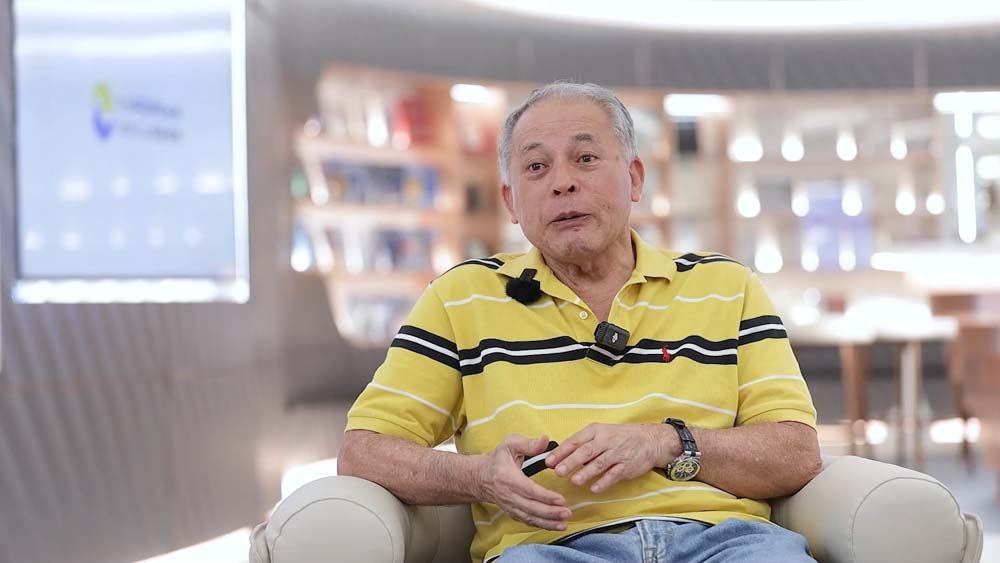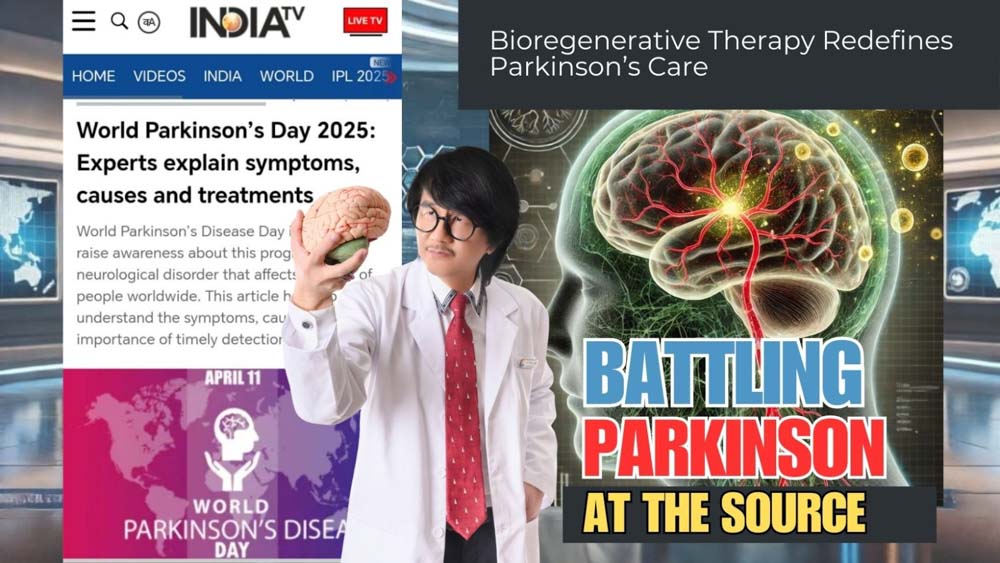KOTA KINABALU, April 11, 2025 – As the world marks World Parkinson’s Day today, attention turns once again to a silent epidemic that affects more than 10 million people worldwide. Among those adding his voice to the fight is Malaysia’s former national deputy police chief, Tan Sri Datuk Seri Panglima Haji Mohd Bakri Omar, who shared his remarkable recovery journey using a pioneering regenerative therapy spearheaded by international biomedical expert Prof. Dr. Mike Chan.
The past year has seen the spotlight on Parkinson’s intensify, especially following the death of U.S. real estate magnate Marshall Rose and the visible decline of actor Michael J. Fox. On a day meant to honor patients and raise awareness, a renewed push is underway for more effective, long-term solutions.
Parkinson’s: An Expanding Global Health Crisis
Parkinson’s disease is a progressive neurodegenerative condition that primarily disrupts motor function due to the degeneration of dopamine-producing neurons in the brain’s substantia nigra. Tremors, muscle stiffness, slow movement, and impaired balance are hallmark symptoms. Yet, non-motor issues such as depression, sleep disturbances, and memory loss often go underreported.
According to the World Health Organization, Parkinson’s disease is the fastest-growing neurological disorder worldwide, with prevalence projected to double by 2040. Experts attribute this rise to aging populations, environmental factors, and growing stress burdens on the brain.
“For far too long, Parkinson’s has been managed rather than truly treated,” said Prof. Mike Chan, Chairman of the European Wellness Biomedical Group. “Conventional therapies mask symptoms but do not halt the disease’s root degeneration. Our focus is different—we go to the cellular level.”
From Symptom Control to Cellular Repair
Prof. Mike Chan’s regenerative therapy protocol—developed over four decades of research—targets the brain’s damaged areas using organ-specific precursor (progenitor) stem cells, supported by peptides, antioxidants, and detox strategies. This integrative method is at the heart of a movement to change the way Parkinson’s is treated globally.
“Not all stem cells are created equal,” Prof. Mike Chan said. “We use targeted brain-and-organ specific precursor stem cells—substantia nigra cells for dopamine restoration, frontal and temporal lobe cells for cognitive and emotional function, and cerebellum cells for coordination.”
Therapies also include neurotrophic peptides like GDNF analogs to support neuron survival, as well as hyperbaric oxygen therapy, heavy metal detox, and precision nutritional supplementation.
“Bioregenerative therapy is not about masking tremors—it’s about regenerating neural function,” he added. “We aim to restore the integrity of the dopaminergic system.”
A High-Profile Testimonial

A New Lease on Life – Thanks to precursor stem cell therapy at European Wellness, Tan Sri Bakri has regained his mobility, improved his speech, and even returned to driving—marking a major milestone in his recovery.
Tan Sri Bakri, who once commanded Malaysia’s police force, was diagnosed with Parkinson’s and saw his condition deteriorate rapidly. After seeking treatment with European Wellness, he underwent a course of brain-targeted regenerative therapy that he says dramatically changed his trajectory.
“I had trouble walking, thinking, even smiling,” he said in a recent testimonial. “Now, I’ve regained control over my movements, and more importantly, my independence. It’s something I didn’t think was possible.”
His experience is one of several highlighted by Prof. Mike Chan, who emphasized that while bioregenerative therapy is still considered innovative, patient outcomes are driving its international demand.
Growing Scientific Support
According to the Compendium of Diseases and Disorders authored by Prof. Chan and his clinical team, Parkinson’s treatment at European Wellness involves precise targeting of the brain’s deteriorating zones—specifically the substantia nigra, basal ganglia, medulla alba, and central nervous system. The stem cells are ethically sourced and matched to individual needs, guided by cellular compatibility and organ-specific requirements.
A 2023 Journal of Regenerative Medicine study reported a 65% improvement in motor function in patients treated with this approach. Larger trials are in progress across Germany, Malaysia, and Switzerland.
Intersections With Autism
In a striking parallel, studies have also shown an increasing number of Autism Spectrum Disorder (ASD) patients developing Parkinson-like symptoms at younger ages. Prof. Mike Chan sees this as an opportunity to apply bioregenerative medicine across the neurodevelopmental and neurodegenerative spectrum.
“There is cellular dysfunction in both conditions—mitochondrial stress, oxidative damage, neuroinflammation,” he explained. “With targeted regenerative treatment, we can intervene earlier and more effectively.”
The Road Ahead
While the broader medical community is still cautious, patient advocates, researchers, and clinicians alike agree on one thing: the current standard of care needs improvement. On World Parkinson’s Day, as millions around the globe rally for awareness, the momentum for better therapies is growing.
“This is a call not just to remember those we’ve lost,” said Prof. Mike Chan, “but to act—for those still fighting. We now have the tools to go beyond palliation and pursue repair. That is the future of medicine.”
Related Article:
https://european-wellness.eu/events/tan-sri-bakri-battle-against-parkinsons/
For more information about regenerative therapy for Parkinson’s disease and neurodegenerative conditions, visit https://european-wellness.eu



Comments are closed.